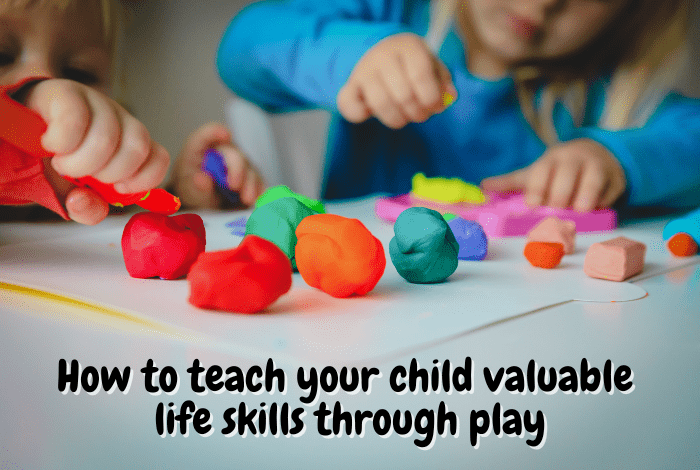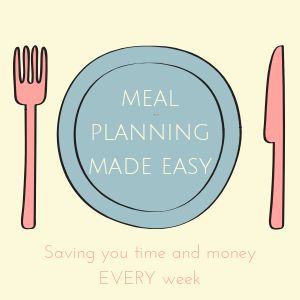Kids begin learning important lessons about the world around them long before they start school. At an early age, they’re picking up new skills and discovering their surrounding environment – from new smells to textures and tastes.
As they get older, play is a fun way to give your kids a head start on developing important life skills, while also keeping them entertained for hours!

Read on to learn how playtime can set your child up to succeed later in life.
Benefits of play
Play is about much more than just having fun. From creative and critical thinking to motor skills and coordination – the benefits of play for young children are endless. Plus, it’s a great way for them to learn in a stress and pressure-free environment. Giving your kids plenty of freedom and time away from screens also encourages them to develop independence and resilience, both important qualities to have as they move through life.
There’s a huge range of activities and toys to encourage different kinds of play to help develop all of the above skills.
How playtime can develop critical thinking and cognitive skills
When kids play, they’re solving problems. It might be a Lego tower that just won’t stand up or a jigsaw piece they just can’t find the right spot for. Critical thinking and problem-solving skills are important to develop at an early age and will help get them ready for school.
Toys, like building blocks and puzzles, are great for building attention spans and encouraging patience and focus. Plus, it gives your little one the opportunity to challenge themselves and gain a sense of achievement once they’ve solved the problem!
Play can also inspire creativity and imagination, helping children brainstorm and conceptualise their thoughts.
Using play to develop motor skills
Motor skills underpin everyday activities like dressing, tying shoelaces and using cutlery. It also helps with other skills like playing sports and walking. By working on their motor skills, you’ll find that your little one’s balance and coordination will improve. Forgot about repetitive exercises – the best way to develop these skills is through play.
Types of play for developing fine motor skills
Fine motor skills are responsible for controlling the small muscles in our hands and feet and hand-eye coordination. By developing these skills, you’ll help your child with actions like holding, pressing, gripping and grasping.
Arts and crafts activities and toys like Lego are great for practising finger coordination and developing fine motor skills. You can also help them with other activities, including:
- Using scissors or hole punches.
- Jewellery creation with threading motions, like beads and buttons onto string.
- Painting and drawing.
- Stacking blocks or various shapes.
- Playing with playdough or clay.
Types of play for developing gross motor skills
Where fine motor skills focus on the small muscles, gross motor is all about larger muscle groups like arms, legs, chest and back. Any game or type of play that involves physical activity will support the development of gross motor skills.
Some good activities for developing gross motor skills include bicycles or tricycles, jumping on the trampoline or playing a game of basketball. However, sometimes it’s as easy as taking them outside and letting them run or jump around!
Using imaginative play to develop life skills
There are no limits to a child’s imagination. Through a world of fantasy and make-believe, kids experience a range of real-life and imaginative scenarios. This gives them the opportunity to experience different perspectives and encourages open-mindedness and different ways of seeing the world.
Developing social skills with imaginative play
Dress-up is one of the easiest ways to foster your child’s creativity and sense of imagination, allowing them to roleplay different scenarios.
Playing dress-ups is a great activity for your child to immerse themselves in pretend play. They can play with friends or siblings, helping them develop important social skills and confidence, as well as vocabulary and language.
Some fun scenarios could be real-life professions, like a firefighter, doctor, or teacher – practising the empathy and social skills that are needed for each role. You can also encourage them to run wild with dragons, dinosaurs or magic!
Kids can also benefit from pretending to be their favourite hero or character. This kind of imaginative play is just as useful as the others because it helps foster creativity and gives your kids the chance to explore new ideas and ways of thinking in a safe space.
Developing responsibility with imaginative play
Sometimes the most menial tasks are the most exciting for little ones. Kids love role-playing activities that they see their parents taking part in every day. Whether it’s a pretend grocery shop or cooking dinner in a toy kitchen, your kids will love building their independence with real-life responsibilities using childrens play equipment.
Not only is play a lot of fun for kids – the right play will help them develop essential skills they’ll carry with them throughout their lives. Encourage them to get involved in active play and they’ll have a blast learning!
Don’t miss out on future posts like this – receive updates directly to your inbox by email by adding your email address here and hitting subscribe. You can also follow me on Twitter or BlogLovin and I’d love to see you over on my Facebook page and on Instagram. If you’re interested, you can find out more about me here and while I’ve got your attention, if you’re wondering why some of my posts lately are a little bit less frugal then have a read of this post.
This is a collaborative Post!








 Logging you in...
Logging you in... Loading IntenseDebate Comments...
Loading IntenseDebate Comments...
